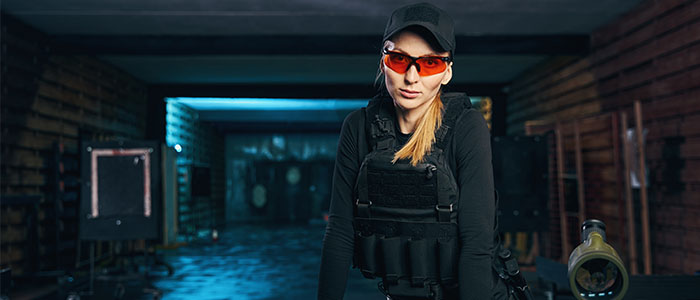To the best of my knowledge, the mere possession of a bulletproof vest is not illegal in Florida. However, should one be possessed during and in furtherance of the commission of certain crimes, that use is in and of itself a crime. Fla. Stat. 775.0846. Upon a conviction for possession of a bulletproof vest during the commission of a crime, a person is subjected to up to 5 years in prison, 5 years of probation, and up to a $5,000 fine. It is a third-degree felony.
What is a Bulletproof Vest?
For the purposes of the criminal statute, Florida defines a bulletproof vest as “a bullet-resistant soft body armor providing, as a minimum standard, the level of protection known as “threat level I,” which shall mean at least seven layers of bullet-resistant material providing protection from three shots of 158-grain lead ammunition fired from a .38 caliber handgun at a velocity of 850 feet per second.” Gun enthusiasts may or may not know what that means. I certainly don’t. However, if the item being worn does not meet these standards, or the State cannot prove that it does beyond a reasonable doubt, a person cannot be convicted of the crime.
What Crimes Are Subject to This Law?
Not every crime committed with possession of a bulletproof vest and in the course of and in furtherance of a crime is subject to penalties under this law. The legislature has deemed such possession and use only a crime when the crime is:
- Murder
- sexual battery
- robbery
- burglary
- arson
- aggravated assault
- aggravated battery
- kidnapping
- escape
- breaking and entering with intent to commit a felony
- criminal gang-related offense under chapter 874
- controlled substance offense under chapter 893, or
- aircraft piracy
So, or example, if the crime is possession of a firearm by a convicted felon and that person is wearing a bulletproof vest, the additional crime for wearing a bulletproof vest cannot be charged.
Double Jeopardy Issues
I have been practicing law since 2006. Over those years I have never seen this crime charged. It doesn’t mean it hasn’t been charged somewhere at some point, it just hasn’t crossed my desk. My guess is that this is so because the State cannot, in good faith, charge both the underlying charge and this charge and have it survive double jeopardy challenges.
Generally speaking, the crimes listed above are more serious with graver consequences than the crime of wearing a bulletproof vest. As such, the State simply charges the other crime. However, the State could still charge both crimes but it wouldn’t be able to convict for both crimes. The judge will generally dismiss the lower crime if a person is convicted of two crimes for the same offense (double jeopardy).
Under Florida law, double jeopardy applies to two charges for the same conduct when each offense does not possess an element unique to the other. For example, a person cannot be convicted of both battery and aggravated battery for the same punch that broke a person’s jaw. Only the aggravated battery charge could survive.
Under this law, because the State must prove a separate crime in order to make the wearing of a bulletproof vest illegal, it will never survive double jeopardy. See generally, Bradley v. State, 540 So.2d 185 (Fla. 5th DCA 1989). In Bradley, the defendant was charged with burglary with a battery and battery. The appellate court reversed the battery conviction on double jeopardy grounds but allowed the burglary with a battery conviction to stand.


